Best of 2015: End of the World
by Lorna
First Published: May 13, 2015
Voted For By: Ste, Ric, Keegan, Ed, Mark R
Reason(s) For Vote:
“Like Lorna, I tend to get attached to the virtual worlds I spend time in and I too feel a kind of sadness when there’s nothing left to do, collect, kill or whatever. It’s feels strange when you say something like that out loud to yourself but it also makes perfect sense at the same time, and Lorna manages to get all that across brilliantly. Again. The bitch.” ~ Ste
“I feel the exact same way about the end of open-world games that Lorna does, only she words it far better than I could. I mean, come on: ‘Layers fall away and we are left with a beautiful, lonely shell and nothing but our own echo for company.’ Fuck. Fuck! That’s the good shit right there.” ~ Ric
“R.E.M ought to be playing as this article begins, fading into something a little more melancholy as it goes on. It sucked me right in and then sucker punched me. I’m not much one for the exploring game worlds, so it was fun to see another point of view, even if it was a little sad to hear that Lorna gets the same sort of post-completion blues that I do.” ~ Keegan
“Open-world games can be an absolute wonder to explore, but very few people think about how you approach it when it’s all over. This article by Lorna is perfect in the way it captures the emptiness and isolation of being a character left in a world created for you, but has nothing left for you.” ~ Ed
“I’ve lost count on the number of times I’ve mused to friends about that sense of mourning I get after completing an immersive game. The feeling of loss can be overwhelming at times, as though solid friendships had been pulled away forever. No matter how often you go back, hoping that they’ll somehow appear once more, they never do. The well-trodden streets where enemies once loitered are now safe from danger, yet there’s a sadness that comes with it. Lorna perfectly sums up everything I’ve ever felt about completing a large, immersive game, but does it in a way that only she can, and makes me long for that first-time feeling.” ~ Mark R
 I’m a notorious game potterer. Given the chance, I’ll happy idle around an open-game world like a Sunday driver, watching, exploring, and stuffing outsized weaponry into a jewellery box the size of a paperback book. Quests back up like enraged motorists behind me as I sniff the Nirnroots in Cyrodiil and hunt blast-shards across Seattle’s rooftops. It’s relaxing and absorbing and, for a time, I forget not only my real-world worries, but every crucial thing happening in-game. I haven’t yet fiddled while Kvatch burns, but give me time.
I’m a notorious game potterer. Given the chance, I’ll happy idle around an open-game world like a Sunday driver, watching, exploring, and stuffing outsized weaponry into a jewellery box the size of a paperback book. Quests back up like enraged motorists behind me as I sniff the Nirnroots in Cyrodiil and hunt blast-shards across Seattle’s rooftops. It’s relaxing and absorbing and, for a time, I forget not only my real-world worries, but every crucial thing happening in-game. I haven’t yet fiddled while Kvatch burns, but give me time.
But my idle wanderings aren’t what this is about, it’s what happens when they end. When you enjoy a world so much that it’s hard to let it go when everything’s finished – and I don’t mean the quests and story so much as the futtery faffy things, whether they are collectibles, readables, killables, or something else. While some games, such as Skyrim, will happily dole out quests forever – go here, fetch this, kill that, massage them – others, their activities having slowly petered out, eventually end. And it is a strange, sad experience.
I felt this rather acutely recently. Having completed inFamous: Second Son, I moved on to the fab standalone prequel, inFamous: First Light, featuring Sucker Punch’s awesome female protagonist, Abigail ‘Fetch’ Walker. I’m a sucker for story, so I lapped the game up in all its delicious prequelness but, once again, the world pulled me in and served up a far more fulfilling game than if it had been just a barren 3D canvas. More and more I spent time bouncing around the rooftops, stopping drive-bys, tracking drone cameras, rescuing hostages, and working out how best to use my Neon powers to snag those elusive Lumens. It was fun. When I didn’t fancy eating away at a story that I knew would have to end, I just existed. I was happy.
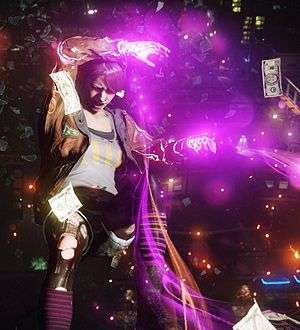 I wandered Seattle, ran the same streets that I had as Delsin Rowe, what seemed like moments before, and was thoroughly absorbed with simply doing odds and ends. The freedom and the fun to be had were only compounded by the beautiful city, as yet unblemished by DUP concrete and endless hostiles. Rain or shine, night and day, I busied myself among its rooftops and markets, occasionally taking the time to look over to the distant news tower in which I’d just battled Augustine a different game ago.
I wandered Seattle, ran the same streets that I had as Delsin Rowe, what seemed like moments before, and was thoroughly absorbed with simply doing odds and ends. The freedom and the fun to be had were only compounded by the beautiful city, as yet unblemished by DUP concrete and endless hostiles. Rain or shine, night and day, I busied myself among its rooftops and markets, occasionally taking the time to look over to the distant news tower in which I’d just battled Augustine a different game ago.
And then I realised, with the last few Lumens and races, that I was done. There were small in-game challenges aplenty, but they aren’t immediate environment missions or tasks, so they didn’t catch my attention that much. It was hard to take. I can liken it to the plight of the game’s protagonist in the sense of a sharp withdrawal. Suddenly my evening hit of freedom was gone and I was without purpose. If you can call chasing down balls of light a purpose.
As much as I love in-game sightseeing, musing, and meandering – and First Light is great for this – I still like ‘things to do’. In Oblivion I plunder forts, endlessly punish the Nath Dyer murdering pricks in Fort Nikel like a vengeful Greek God, and pick up odd quests here and there. I also collect enchanted stuff and store it in creaking receptacles in my primary houses, namely in Skingrad and Frostcrag Spire. There is always something to do, mainly because I have eked the game out so long.
With First Light, however, there was that sinking, record player needle-jerk moment when I realised it was all over. Yes, there are endless respawning DUP patrols, hostages, and drive-bys but they aren’t enough. Eventually I had to switch off and let go. And then the next night I came back just to check I hadn’t missed anything, even though I knew that I hadn’t. I wandered around, wishing there was something to do. I didn’t fancy the arena, and the in-game challenges, which didn’t immediately call to me, so I was left to switch off and try and put it out of my head. But the developers had created such an engaging and powerful character in Fetch, and such a gorgeous, in-depth game world in the rain-tickled streets of Seattle that I hated to shut down. I hated there was nothing else for me to do.
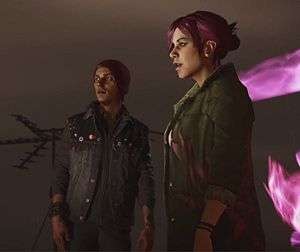 And when I finally polish off the bits and bobs in inFamous: Second Son I know I’ll feel the same. I don’t know if I’ll ever reach that point with Oblivion – there is so much left to do, but it is certainly possible. It happens with most games I get attached to, and which lend themselves to that type of play. I found it with Fable 2, Bully, and Burnout Paradise to name but a few. Suddenly, where there were once so many things to do, the world became hollow, somehow, when those things were finished. Superjumps, billboards, gargoyles, and gnomes – the often unusual things that fill the odd corners and quests of our game worlds give them extra dimension, but it is transitory. When it inevitably passes, through our own actions, it feels sad. Layers fall away and we are left with a beautiful, lonely shell and nothing but our own echo for company.
And when I finally polish off the bits and bobs in inFamous: Second Son I know I’ll feel the same. I don’t know if I’ll ever reach that point with Oblivion – there is so much left to do, but it is certainly possible. It happens with most games I get attached to, and which lend themselves to that type of play. I found it with Fable 2, Bully, and Burnout Paradise to name but a few. Suddenly, where there were once so many things to do, the world became hollow, somehow, when those things were finished. Superjumps, billboards, gargoyles, and gnomes – the often unusual things that fill the odd corners and quests of our game worlds give them extra dimension, but it is transitory. When it inevitably passes, through our own actions, it feels sad. Layers fall away and we are left with a beautiful, lonely shell and nothing but our own echo for company.
Some players thrive in such circumstances; they make their own paths and quests, and activities, happily piling together the remnants of a game and doing their own thing. Being the maudlin idiot that I am, I mourn and eventually move on, stacking it on my creaking shelf of nostalgia and hoping for the next release in the series so that I can do it all again. When we attempt to define the mark(s) of a good game I think that, for me, the longer the layers take to peel, and for the walls to fall away, the better. The longer a world can hold on to me for legitimate reasons (not stupidly hard or obtuse gameplay) the better. It makes for a richer game and for a more interesting, activity-filled playground to escape into. Even if the phantom purpose and goals may well be just a diversion from the altogether harder ones presented by life.
Last five articles by Lorna
- Flagging Heart
- Where Have All the Hours Gone?
- I Heart... Overlord
- Life Goes On: Done to Death - Review
- Welcome to Spoilerville, Please Despise Your Stay














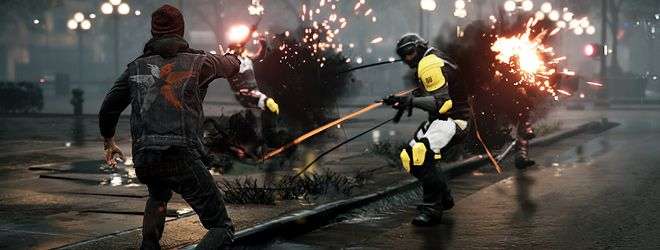
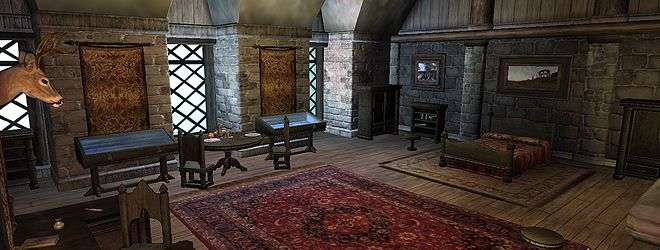
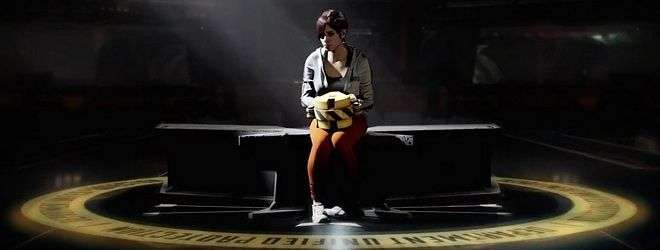





There are no comments, yet.
Why don’t you be the first? Come on, you know you want to!